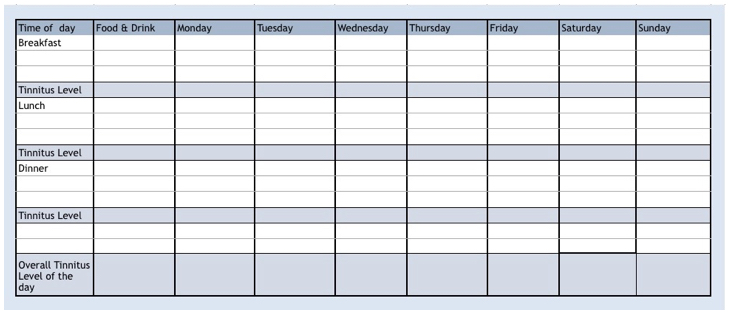Managing tinnitus spiking
Living with tinnitus for some years I’ve come to realise some days are far better than others, from constant ringing to near silence. Managing tinnitus symptoms can be one of the most difficult things as a tinnitus sufferer.
Just when you think you’re starting to manage tinnitus, you can be hit with a sudden buzz that may last several days.
This is called tinnitus spiking. Often when I speak with sufferers the common theme is that the noise can be dormant some days and high pitched the next.
Tinnitus spikes heighten differently from person to person. Everyone’s tinnitus spike is different hence it can be difficult to understand when and what are your tinnitus spikes.
Some tinnitus sufferers say that their tinnitus spikes in one ear whereas some sufferers say that tinnitus spikes in both ears. I must stress there hasn’t been an in-depth amount of knowledge and proven research that has shown exactly why tinnitus spikes. That said, it’s proven that certain situations, foods, people and relationships do have an impact on the noise levels of tinnitus.
What causes tinnitus spikes?
There are several reasons why tinnitus may spike at times. It’s important to remember that your spike will be very different to others.
Loud noise exposure – Excessive amounts of loud noise can damage parts of our inner ears. The inner ear has tiny hair cells. When sound waves hit them, they transfer the vibrations into an electrical current that then goes to the brain. Unfortunately, when these tiny hair cells become damaged they no longer repair, which causes tinnitus. If you already suffered from tinnitus then protecting your ears is a must in loud environments as your inner hair cells are already damaged.
Stress – Thinking about first world problems, work, family and relationships can have a huge impact on tinnitus and cause a high level of anxiety triggering fight or flight.
Lack of sleep – Creates a level of stress, anxiety, lying wide awake at night our thoughts wander and create unnecessary worry.
Prescribed medications – Some forms of medication have been known to heighten tinnitus and can cause this amongst people. Although it has been estimated that up to 200 prescribed medications can trigger or heighten tinnitus, this is not very common.
Alcohol consumption – Research has shown that alcohol consumption increases blood flow to the ear and as a result causes ringing to heighten.
Although the above are some of the main reasons why tinnitus may spike, there isn’t much thorough research into proven reasons as to why tinnitus may spike.
How to find your tinnitus spikes
There are many ways to find your tinnitus spikes – one of the easiest ways to identify your spikes is by creating a food diary.
Over the past four years of having tinnitus symptoms, I’ve realised many things about my condition but more importantly which triggers heighten the noise. Through carrying out a food diary exercise some years ago, over several months, I cut many products out of my diet and became more aware of which products had a negative impact on my tinnitus.
Now that I know this information I’m more prepared the following day if the noise heightens. For example, if I’m due to attend a party or concert and may consume alcohol, through my food diary I’ve realised the following day my tinnitus will heighten over several days.
Before I knew this information, I would be distressed and anxious because I was unsure why my tinnitus kept heightening at certain times.
This is an example of a food diary.
As you can see it’s a simple chart that keeps a record of foods, drinks and your tinnitus levels. Simply record your food intake every day over several weeks and you will be able to identify key foods and drinks that may increase your tinnitus symptoms.
Managing tinnitus symptoms well
It’s always important to recognise that tinnitus will go up but more importantly go back down. Unfortunately, when I speak to many tinnitus sufferers, I often hear that when tinnitus spikes, stress and anxiety soon follow.
Filling our minds with negative thoughts, we start to become overwhelmed by the whole situation. When you feel like you start to become stressed, anxious or overwhelmed, try some of these relaxation methods.
Calming breath
- Find a calming environment, a quiet room, or a bedroom.
- Take a long, breath in through your nose.
- Hold your breath for 3 seconds.
- Release slowly for 4 or 5 seconds.
Keep your hands busy
It’s been known for centuries that keeping the hands busy such as using worry beads help the body to relax. There are many products on the market ranging from worry beads, small Rubik cubes, fidget squares, which are all proven to have a soothing effect.
Get moving
Exercise is beneficial, whether it be short walks to the local shop or training three times a week at the gym. After exercise, it’s been proven to release “feel good” hormones, called endorphins, through your body and help to clear your mind. Research has shown that exercising regularly helps you become more focused and less tense, which is a great help when managing tinnitus symptoms.
This is one of my favourite things to do when I feel stressed or anxious. When I feel overwhelmed I go for a long run to clear my mind and surprisingly I do feel a noticeable difference after this. For some people exercise may be difficult to do for several reasons, however taking a short walk to clear your mind will have a positive impact on stress, anxiety, and you’ll feel less overwhelmed.
Cold Water
If you are feeling overwhelmed or anxious, cold water can have an instant impact on how you’re feeling, releasing “feel good” molecules.
- Simply fill a bowl with lots of ice.
- Hold your breath and then put your face into the bowl.
- Come up when you feel you need to breathe.
- Repeat until you feel better.
Why does this work?
Ice cold water helps to increase the production of beta-endorphins – ‘feel good’ molecules that give a feeling of comfort. Studies have shown that having a cold shower once over several weeks can boost mood levels.
Although managing a food diary may seem like a large exercise, it is proven it can be very beneficial to understand more about which triggers you may get from food and drink. Once you understand your triggers, you will be better prepared for managing tinnitus symptoms.




